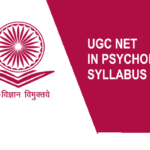The human mind is a complex and fascinating realm, and understanding the intricacies of thought processes has been a central focus of cognitive psychology. Theoretical perspectives provide frameworks for comprehending how we think, form concepts, reason, and use language. In this blog, we will delve into various theoretical perspectives on thought processes, exploring associationism, gestalt psychology, information processing, and the feature integration model. Additionally, we will unravel the concept formation, discussing rules, types, and strategies involved in this cognitive process. Furthermore, we will explore the crucial role of concepts in thinking, the different types of reasoning, and the intricate relationship between language and thought.
Theoretical Perspectives on Thought Processes:
- Associationism: Associationism, rooted in the works of philosophers like John Locke and David Hume, posits that complex ideas are formed through the association of simple ideas. This perspective suggests that thoughts are interconnected through associative links, and learning involves the strengthening of these associations. The concept of conditioning, as demonstrated by Pavlov’s classical conditioning and Skinner’s operant conditioning, aligns with associationism, emphasizing the importance of associations in shaping behaviour.
- Gestalt Psychology: Gestalt psychology offers a different lens through which to view thought processes. Rather than breaking down mental experiences into isolated components, gestalt psychologists argue that our minds naturally organize information into wholes or patterns. This perspective emphasizes the role of perception in shaping thought, illustrating how individuals perceive and understand the world as unified, meaningful entities.
- Information Processing: Information processing models view the mind as a sophisticated information processor, likening cognitive functions to the operations of a computer. These models posit that sensory input undergoes stages such as encoding, storage, and retrieval, much like the processes of input, processing, and output in a computer system. Cognitive psychologists draw upon this perspective to investigate how individuals acquire, store, and use information.
- Feature Integration Model: The Feature Integration Model, proposed by Anne Treisman, explores how we perceive and integrate features to form a cohesive whole. According to this model, attention plays a crucial role in combining individual features into a unified perception. The process involves a pre-attentive stage, where features are registered automatically, and a focused attention stage, where features are consciously integrated. This model sheds light on how our brains assemble complex stimuli from basic elements.
Concept Formation: Rules, Types, and Strategies:
- Rules of Concept Formation: Concept formation involves the mental categorization of objects, events, or ideas based on shared characteristics. Rules governing this process include prototype formation, where individuals create a mental average of a category, and exemplar formation, where specific instances represent a concept. Additionally, concepts can be defined by rules, specifying the necessary and sufficient conditions for inclusion in a category.
- Types of Concept Formation:
- Natural Concepts: Formed organically through everyday experience.
- Artificial Concepts: Defined by specific rules or conditions.
- Hierarchical Concepts: Organized in a hierarchy, with broader categories encompassing subcategories.
- Strategies in Concept Formation:
- Inductive Reasoning: Inferring general principles from specific examples.
- Deductive Reasoning: Applying general principles to specific cases.
- Analogical Reasoning: Drawing parallels between different but similar situations.
Role of Concepts in Thinking:
Concepts are the building blocks of thought, enabling individuals to make sense of the world, communicate effectively, and solve problems. They provide mental shortcuts, allowing for quicker and more efficient processing of information. Concepts also facilitate the formation of schemas, mental frameworks that guide understanding and expectations in various situations.
Types of Reasoning:
- Inductive Reasoning: Inductive reasoning involves drawing general conclusions from specific observations. While it does not guarantee absolute certainty, it contributes to the development of theories and scientific hypotheses based on observed patterns.
- Deductive Reasoning: Deductive reasoning starts with general principles and applies them to specific cases. It is a fundamental aspect of logical thinking and is commonly used in mathematics and formal logic.
- Abductive Reasoning: Abductive reasoning seeks to find the most plausible explanation for a set of observations. It involves generating hypotheses that best fit the available evidence.
Language and Thought:
The relationship between language and thought has been a topic of extensive debate. The Sapir-Whorf hypothesis, also known as linguistic relativity, suggests that language shapes and influences thought. Different languages may highlight or downplay certain concepts, impacting the way individuals perceive and think about the world. However, the extent of this influence remains a subject of ongoing research and discussion within the field of linguistics and cognitive psychology.
Conclusion:
In unravelling the theoretical perspectives on thought processes, we navigate a rich landscape of ideas that contribute to our understanding of cognition. From associationism’s emphasis on interconnected ideas to gestalt psychology’s focus on holistic perception, and from information processing models mirroring computer operations to the intricate strategies of concept formation, the study of thought processes continues to evolve. Recognizing the role of concepts in thinking, understanding various reasoning types, and exploring the complex interplay between language and thought to deepen our comprehension of the human mind. As we continue to explore and refine these theories, the quest to unravel the mysteries of cognition remains a captivating journey in the realm of psychology.





